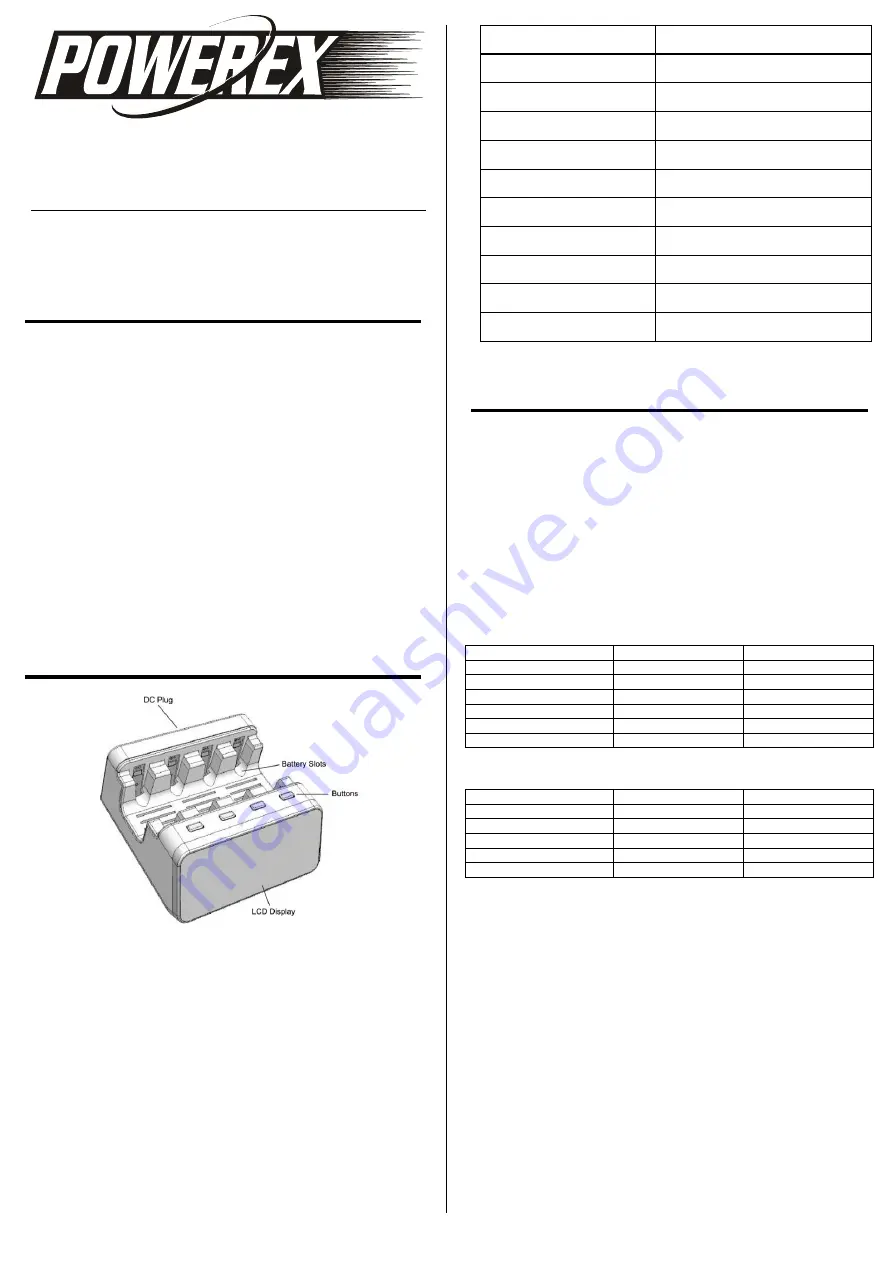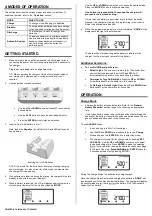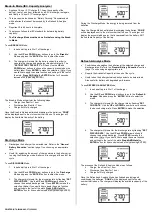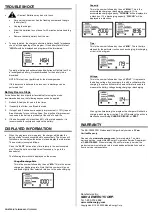
PRINTED IN TAIWAN A03-3713506-001
Thank you for purchasing the Powerex MH-C9000PRO
Professional Charger-Analyzer. Read these
instructions carefully before operating this unit.
GENERAL PRECAUTIONS
Do not charge battery cells other than NiMH or NiCD. Please
check with the battery manufacturer to ensure it can accept the
programmed charging and discharging rates.
Do not expose the unit to rain or moisture due to the risk of fire.
Do not operate the charger if it appears damaged in any way.
Always place the battery cells with positive tip facing the top.
Incorrect polarity may cause fire or explosion. Observe polarity
diagrams located on the charger.
Do not allow the unit to be exposed to direct sunlight. Operate
in a well-ventilated area. Do not place unit on the carpet.
Do not allow the battery terminals to become shorted.
To reduce the risk of damage to the power cord, always pull by
connector rather than the cord.
Use only the supplied adapter or optional regional and car
adapter offered by Maha Energy. Using third party accessories
voids the product warranty.
FEATURES & SPECIFICATIONS
Four independent slots for AA or AAA NiMH batteries.
4 Modes of Operation:
Charge
,
Break-In
,
Discharge
, and
Refresh &
Analyze
.
Memory Settings: Remembers the last settings that were used
(Modes and Value) to make it easier to setup next time.
Easy Setup: Set settings for 1 slot and apply same settings to all
slots.
Large Backlit LCD Display (with On/Off option).
Digitally displays the Capacity, Voltage, Time, and Rate.
19 selectable charging rates from 0.2A to 2.0A.
10 selectable discharging rates from 0.1A to 1.0A.
Worldwide power supply.
Optional car adapter.
Charge Time:
1 Hour (2000mAh battery at 2000mA
charge rate)
Charge Rate:
Programmable from 0.2A to 2.0A in
increments of 0.1A
Discharge Rate:
Programmable from 0.1A to 1.0A in
increments of 0.1A
Battery Conditioner:
Yes
Top-off Charging Rate:
100mA
Maintenance Charging Rate:
10mA
Discharge Termination:
Voltage 0.90V
Supported Capacity*:
100 to 4,000mAh
Charger Input Voltage:
DC: 12V 2.0A
Power Supply Input:
AC: 100-240V 50/60Hz
Charger Size:
4.25” x 4.25” x 2” (LWH)
* Always ensure that the batteries can accept the programmed rates.
GENERAL BATTERY EDUCATION
Choosing the Right Charge & Discharge Rate
Charging at a rate below 30% of the battery capacity and above 100% of
the battery capacity is not recommended.
Charging too slow may prevent the charger from terminating correctly.
Charging too fast may overheat and damage the battery.
Typically speaking, a slower charge rate will yield better battery
performance but requires longer time. A faster charge rate may not
charge as fully and battery temperature can be higher.
As for the Discharge rate, do not exceed 100% of the battery capacity.
Select a Discharge rate that is similar to your application.
AAA Batteries:
Battery Capacity (mAh)
Charge Rate (mA)
Discharge Rate (mA)
700
300
100
800
400
200
900
400
200
1000
500
200
1100
500
200
1200
600
300
AA Batteries:
Battery Capacity (mAh)
Charge Rate (mA)
Discharge Rate (mA)
1800
900
400
2200
1100
500
2400
1200
600
2600
1300
600
2700
1300
600
Battery Matching
In most devices, usually two or more batteries are used together. When
batteries are used in a series, the performance is limited by the worst
one. In other words, one poorly performing battery can significantly
reduce the device runtime.
Battery matching refers to grouping batteries with similar “actual”
capacity. To perform this, use the Refresh & Analyze mode to determine
the battery capacity. Group the batteries with capacity within about +/- 5%
of the rated capacity.
Battery “Forming”
New batteries and those stored for an extended period become
chemically deactivated. Battery forming is a charge-discharge-charge
cycle which forces a full charge into the battery at a very slow rate. This
process activates the battery. In certain cases, it needs to be repeated
two or three times.
Battery forming can be performed using the Break-In mode.
MH-C9000PRO
Professional Charger-Analyzer






















